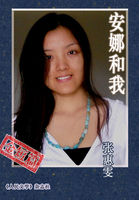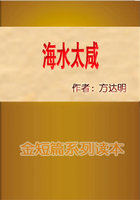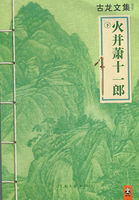IT was a long and gloomy night that gathered on me, haunted by the ghosts of many hopes, of many dear remembrances, many errors, many unavailing sorrows and regrets.
I went away from England; not knowing, even then, how great the shock was, that I had to bear. I left all who were dear to me, and went away; and believed that I had borne it, and it was past. As a man upon a field of battle will receive a mortal hurt, and scarcely know that he is struck, so I, when I was left alone with my undisciplined heart, had no conception of the wound with which it had to strive.
The knowledge came upon me, not quickly, but little by little, and grain by grain. The desolate feeling with which I went abroad, deepened and widened hourly. At first it was a heavy sense of loss and sorrow, wherein I could distinguish little else. By imperceptible degrees, it became a hopeless consciousness of all that I had lost—love, friendship, interest; of all that had been shattered—my first trust, my first affection, the whole airy castle of my life; of all that remained—a ruined blank and waste, lying wide around me, unbroken, to the dark horizon.
If my grief were selfish, I did not know it to be so. I mourned for my child-wife, taken from her blooming world, so young. I mourned for him who might have won the love and admiration of thousands, as he had won mine long ago. I mourned for the broken heart that had found rest in the stormy sea; and for the wandering remnants of the simple home, where I had heard the night-wind blowing, when I was a child.
From the accumulated sadness into which I fell, I had at length no hope of ever issuing again. I roamed from place to place, carrying my burden with me everywhere. I felt its whole weight now; and I drooped beneath it, and I said in my heart that it could never be lightened.
When this despondency was at its worst, I believed that I should die. Sometimes, I thought that I would like to die at home; and actually turned back on my road, that I might get there soon. At other times, I passed on farther away,—from city to city, seeking I know not what, and trying to leave I know not what behind.
It is not in my power to retrace, one by one, all the weary phases of distress of mind through which I passed. There are some dreams that can only be imperfectly and vaguely described; and when I oblige myself to look back on this time of my life, I seem to be recalling such a dream. I see myself passing on among the novelties of foreign towns, palaces, cathedrals, temples, pictures, castles, tombs, fantastic streets—the old abiding places of History and Fancy—as a dreamer might; bearing my painful load through all, and hardly conscious of the objects as they fade before me. Listlessness to everything, but brooding sorrow, was the night that fell on my undisciplined heart. Let me look up from it—as at last I did, thank Heaven!—and from its long, sad, wretched dream, to dawn.
For many months I travelled with this ever-darkening cloud upon my mind. Some blind reasons that I had for not returning home—reasons then struggling within me, vainly, for more distinct expression—kept me on my pilgrimage. Sometimes, I had proceeded restlessly from place to place, stopping nowhere; sometimes, I had lingered long in one spot. I had had no purpose, no sustaining soul within me, anywhere.
I was in Switzerland. I had come out of Italy, over one of the great passes of the Alps, and had since wandered with a guide among the by-ways of the mountains. If those awful solitudes had spoken to my heart, I did not know it. I had found sublimity and wonder in the dread heights and precipices, in the roaring torrents, and the wastes of ice and snow; but as yet, they had taught me nothing else.
I came, one evening before sunset, down into a valley, where I was to rest. In the course of my descent to it, by the winding track along the mountain-side, from which I saw it shining far below, I think some long-unwonted sense of beauty and tranquillity, some softening influence awakened by its peace, moved faintly in my breast. I remember pausing once, with a kind of sorrow that was not all oppressive, not quite despairing. I remember almost hoping that some better change was possible within me.
I came into the valley, as the evening sun was shining on the remote heights of snow, that closed it in, like eternal clouds. The bases of the mountains forming the gorge in which the little village lay, were richly green; and high above this gentler vegetation, grew forests of dark fir, cleaving the wintry snow-drift, wedge-like, and stemming the avalanche. Above these, were range upon range of craggy steeps, grey rock, bright ice, and smooth verdure-specks of pasture, all gradually blending with the crowning snow. Dotted here and there on the mountain's-side, each tiny dot a home, were lonely wooden cottages, so dwarfed by the towering heights that they appeared too small for toys. So did even the clustered village in the valley, with its wooden bridge across the stream, where the stream tumbled over broken rocks, and roared away among the trees. In the quiet air, there was a sound of distant singing—shepherd voices; but, as one bright evening cloud floated midway along the mountain's-side, I could almost have believed it came from there, and was not earthly music. All at once, in this serenity, great Nature spoke to me; and soothed me to lay down my weary head upon the grass, and weep as I had not wept yet, since Dora died!
I had found a packet of letters awaiting me but a few minutes before, and had strolled out of the village to read them while my supper was making ready. Other packets had missed me, and I had received none for a long time. Beyond a line or two, to say that I was well, and had arrived at such a place, I had not had fortitude or constancy to write a letter since I left home.
The packet was in my hand. I opened it, and read the writing of Agnes.
She was happy and useful, was prospering as she had hoped. That was all she told me of herself. The rest referred to me.
She gave me no advice; she urged no duty on me; she only told me, in her own fervent manner, what her trust in me was. She knew (she said) how such a nature as mine would turn affliction to good. She knew how trial and emotion would exalt and strengthen it. She was sure that in my every purpose I should gain a firmer and a higher tendency, through the grief I had undergone. She, who so gloried in my fame, and so looked forward to its augmentation, well knew that I would labour on. She knew that in me, sorrow could not be weakness, but must be strength. As the endurance of my childish days had done its part to make me what I was, so greater calamities would nerve me on, to be yet better than I was; and so, as they had taught me, would I teach others. She commended me to God, who had taken my innocent darling to His rest; and in her sisterly affection cherished me always, and was always at my side go where I would; proud of what I had done, but infinitely prouder yet of what I was reserved to do.
I put the letter in my breast, and thought what had I been an hour ago! When I heard the voices die away, and saw the quiet evening cloud grow dim, and all the colours in the valley fade, and the golden snow upon the mountain-tops become a remote part of the pale night sky, yet felt that the night was passing from my mind, and all its shadows clearing, there was no name for the love I bore her, dearer to me, henceforward, than ever until then.
I read her letter many times. I wrote to her before I slept. I told her that I had been in sore need of her help; that without her I was not, and I never had been, what she thought me; but that she inspired me to be that, and I would try.
I did try. In three months more, a year would have passed since the beginning of my sorrow. I determined to make no resolutions until the expiration of those three months, but to try. I lived in that valley, and its neighbourhood, all the time.
The three months gone, I resolved to remain away from home for some time longer; to settle myself for the present in Switzerland, which was growing dear to me in the remembrance of that evening; to resume my pen; to work.
I resorted humbly whither Agnes had commended me; I sought out Nature, never sought in vain; and I admitted to my breast the human interest I had lately shrunk from. It was not long, before I had almost as many friends in the valley as in Yarmouth: and when I left it, before the winter set in, for Geneva, and came back in the spring, their cordial greetings had a homely sound to me, although they were not conveyed in English words.
I worked early and late, patiently and hard. I wrote a Story, with a purpose growing, not remotely, out of my experience, and sent it to Traddles, and he arranged for its publication very advantageously for me; and the tidings of my growing reputation began to reach me from travellers whom I encountered by chance. After some rest and change, I fell to work, in my old ardent way, on a new fancy, which took strong possession of me. As I advanced in the execution of this task, I felt it more and more, and roused my utmost energies to do it well. This was my third work of fiction. It was not half written, when, in an interval of rest, I thought of returning home.
For a long time, though studying and working patiently, I had accustomed myself to robust exercise. My health, severely impaired when I left England, was quite restored. I had seen much. I had been in many countries, and I hope I had improved my store of knowledge.
I have now recalled all that I think it needful to recall here, of this term of absence—with one reservation. I have made it, thus far, with no purpose of suppressing any of my thoughts; for, as I have elsewhere said, this narrative is my written memory. I have desired to keep the most secret current of my mind apart, and to the last. I enter on it now. I cannot so completely penetrate the mystery of my own heart, as to know when I began to think that I might have set its earliest and brightest hopes on Agnes. I cannot say at what stage of my grief it first became associated with the reflection, that, in my wayward boyhood, I had thrown away the treasure of her love. I believe I may have heard some whisper of that distant thought, in the old unhappy loss or want of something never to be realized, of which I had been sensible. But the thought came into my mind as a new reproach and new regret, when I was left so sad and lonely in the world.
If, at that time, I had been much with her, I should, in the weakness of my desolation, have betrayed this. It was what I remotely dreaded when I was first impelled to stay away from England. I could not have borne to lose the smallest portion of her sisterly affection; yet, in that betrayal, I should have set a constraint between us hitherto unknown.
I could not forget that the feeling with which she now regarded me had grown up in my own free choice and course. That if she had ever loved me with another love—and I sometimes thought the time was when she might have done so—I had cast it away. It was nothing, now, that I had accustomed myself to think of her, when we were both mere children, as one who was far removed from my wild fancies. I had bestowed my passionate tenderness upon another object; and what I might have done, I had not done; and what Agnes was to me, I and her own noble heart had made her.
In the beginning of the change that gradually worked in me, when I tried to get a better understanding of myself and be a better man, I did glance, through some indefinite probation, to a period when I might possibly hope to cancel the mistaken past, and to be so blessed as to marry her. But, as time wore on, this shadowy prospect faded, and departed from me. If she had ever loved me, then, I should hold her the more sacred; remembering the confidences I had reposed in her, her knowledge of my errant heart, the sacrifice she must have made to be my friend and sister, and the victory she had won. If she had never loved me, could I believe that she would love me now?
I had always felt my weakness, in comparison with her constancy and fortitude; and now I felt it more and more. Whatever I might have been to her, or she to me, if I had been more worthy of her long ago, I was not now, and she was not. The time was past. I had let it go by, and had deservedly lost her.
That I suffered much in these contentions, that they filled me with unhappiness and remorse, and yet that I had a sustaining sense that it was required of me, in right and honour, to keep away from myself, with shame, the thought of turning to the dear girl in the withering of my hopes, from whom I had frivolously turned when they were bright and fresh—which consideration was at the root of every thought I had concerning her—is all equally true. I made no effort to conceal from myself, now, that I loved her, that I was devoted to her; but I brought the assurance home to myself, that it was now too late, and that our long-subsisting relation must be undisturbed.
I had thought, much and often, of my Dora's shadowing out to me what might have happened, in those years that were destined not to try us; I had considered how the things that never happen, are often as much realities to us, in their effects, as those that are accomplished. The very years she spoke of, were realities now, for my correction; and would have been, one day, a little later perhaps, though we had parted in our earliest folly. I endeavoured to convert what might have been between myself and Agnes, into a means of making me more self-denying, more resolved, more conscious of myself, and my defects and errors. Thus, through the reflection that it might have been, I arrived at the conviction that it could never be.
These, with their perplexities and inconsistencies, were the shifting quicksands of my mind, from the time of my departure to the time of my return home, three years afterwards. Three years had elapsed since the sailing of the emigrant ship; when, at that same hour of sunset, and in the same place, I stood on the deck of the packet vessel that brought me home, looking on the rosy water where I had seen the image of that ship reflected.
Three years. Long in the aggregate, though short as they went by. And home was very dear to me, and Agnes too—but she was not mine—she was never to be mine. She might have been, but that was past!















